Online Program
This is the online program for ASC2017.
Download your PDF Pocket Program for the onsite program complete with session hashtags to follow along from afar. Digital Delegates may attend all plenaries and sessions in the Auditorium.
To see the onsite program for the two days in Adelaide, go here.
Online program sessions were reviewed and accepted by the program committee for inclusion in the conference program both at the onsite conference in Adelaide, and via interactive webinars online after the Adelaide event.
Online sessions are attended remotely from your own location using a computer or mobile device to watch Adelaide-based livestreams and to attend interactive webinars held with presenters around Australia.
Listed below are the confirmed presentations for the online program.
More sessions coming soon.
We are still accepting submissions for the online program.
All onsite delegates have full access to both onsite and online programs. Digital delegates will have access only to the sessions appearing on this page, whether the livestreamed Auditorium sessions from the two days in Adelaide, or the online webinar sessions pre and post conference.
Please note that although the presentations below have been confirmed, sometimes changes can occur outside our/presenter control. This program may be subject to change.
More info on the Registration page here.
Buy Digital Delegate Tickets for Online
Click the arrows for more details or the title for full information.
Livestream
‘Prepare Wellington’: Trans-situational mapping in a crisis. What can contextually relevant information offer science communication? | Speakers: Jo Bailey Tristam Sparks
A research report written for the Wellington Regional Emergency Management Office that aimed to understand whether citizens within a geographically diverse area might use alternative networks of communication before a crisis.
Animation case study: The Australian National Outlook | Speaker: Adrian King
In this case study, Adrian will guide you through the process of how Redboat worked with CSIRO to develop the script, concept and designs for, and to produce the animation for, The Australian National Outlook.
Animation case study: The Soil & Landscape Grid of Australia | Speaker: Adrian King
In this case study, Adrian will guide you through the process of how Redboat worked with CSIRO to develop the script, concept and designs for, and to produce the animation for, The Soil & Landscape Grid of Australia.
Astrospatial Architecture and Smart Light Cities: A new urban ethos based on electromagnetic fluxes | Speaker: Davina Jackson
Light remains the origin and sustenance of all forms of life on Earth—but human living is being transformed by ingenious applications of astrospatial technologies that were devised to fly to other planets.
Bringing together Aboriginal stories, government priorities and science to create change with the interactive Interplay Wellbeing Framework | Speaker: Sheree Cairney
Aboriginal knowledge is passed down through stories, and governments mainly speak the language of numbers, so we developed a coordinated approach merging Aboriginal knowledge with western science – by bringing together stories and numbers.
Climate champion farmers, integrating deficit, dialogue and participatory science engagement | Speaker: Jenni Metcalfe
Explores the Climate Champion program of farmers to look at the relationships that evolved between the farmers who participated in the program during 2009-2016.
Communicating about social impacts to scientists, engineers, and corporations who are changing our planet | Speaker: Will Rifkin | Co-author: Katherine Witt
In 2013, the coal seam gas (CSG) industry provided $1 million for 3 years of research to identify the cumulative social and economic effects of the industry’s $30-billion development in Queensland’s Darling Downs agricultural area. This conference paper will not focus on the results per se but rather on the reception to the results by industry, government, and the community.
Communicating Complex Science in the clickbait era | Speaker: Helen Beringen
This presentation will illustrate the key challenges of communicating complex science involving big data, to ensure impact.
Communicating neuroscience across cultures in remote Aboriginal communities with Brain Stories and No Smokes | Speaker: Sheree Cairney
‘Brain stories’ is a concept of developing tools to communicate the neuroscience of brain and behavior for Aboriginal people.
Communicating Science in a [SEC=UNCLASSIFIED] environment: A case study of science communication at Defence Science and Technology Group | Speaker: Marc West | Co-author: Renée Webster
We will cover some of the unique challenges faced when communicating science in this often restrictive environment, and present strategies to improve outreach and communication activities within the prescribed policy and security framework.
Giving science a style makeover | Speakers: Richard Stanford Sarah Olesen
Until now, there has been no Australian science style manual. Introducing the Australian manual of scientific style (AMOSS).
How a PhD student ended up creating an award-winning outreach video | Speaker: Tullio Rossi
In this talk you will discover how a PhD student, with no experience in animation and outreach, ended up creating a three-time award-winning animated video.
LAWA (Land Air Water Aotearoa): A human-centred design process case study for science communication | Speakers: Jo Bailey Tristam Sparks
LAWA (Land Air Water Aotearoa) is a website designed with the purpose of making scientific information on New Zealand’s environment available to the public in an easily comprehensible, credible and trustworthy way.
New modes of thought: Case studies from Canada’s far North | Speaker: Misha Donohoe
This session provides a synthesis of projects that Misha has been involved with. It draws on on extensive interviews and describes emergent themes in approaches to science and the role of science communication in the North.
Perfecting the pitch: challenging researchers to see (and talk about) their science differently | Speaker: Karen Pearce | Co-author: Mandy Hopkins
In the National Environmental Science Programme Earth Systems and Climate Change Hub, we are actively working with our researchers to help them see their science through the eyes of the different stakeholder groups, and communicate their work accordingly.
Rebooting Spaceship Earth: Introducing the Global Earth Observation System of Systems (GEOSS) | Speaker: Davina Jackson
The Global Earth Observation System of Systems (GEOSS) project is now in its second decade of international funding through to 2025 and is supported by more than 200 nations and global science organisations, including the major space agencies.
Recognising and rewarding research engagement and impact | Speaker: Leanne Harvey
While Australia’s research performs strongly on indicators of quality, it underperforms in measures of university and end-user collaboration for research.
Science communication in a post-fact world | Producer: Lisa Bailey | Chair: Lisa Bailey | Panellists: Anna-Maria Arabia Tory Shepherd Simon Torok Susannah Eliott
How do we start conversations when we can’t negotiate any common ground to start from? How do we, those whose job it is to digest, interpret and present that information in a useful and accessible way, go forward in this brave new world?
Seeing science museums differently | Producer: Kristin Alford | Chair: Kristin Alford | Panellists: Katie Dyer Derek Williamson Katrina Nitschke
Join carefully selected panellists in this futuristic peek into the rich tapestry of science museums…
So why don’t they just listen to us? – changing strategies to better engage with different people | Producer: Craig Cormick | Speaker: Craig Cormick
By Dr Craig Cormick Incoming President ASC Different people can have very different values and beliefs to your own. And as these values and beliefs govern people’s attitudes, it is important to understand them so that you can frame discussions from their point of view, and more successfully engage with them. One of the core […]
Talking about environmental pollution – when science is only part of the conversation | Speaker: Laura Boland
People affected by an environmental pollution issue often don’t have a choice but to become interested in the issue. Scientific information can play a role in helping those people understand the issue more clearly and make important decisions to protect their own health.
The (economic) value of science | Speaker: Fabien Medvecky | Co-author: Stevie de Saille
In this talk, I show that whatever this “science for economic growth” agenda might do to science, its biggest flaw is that it rests on a naive reading of economic theory.
The Great ASC Debate: Celebrities should promote scientific outcomes! | Producer: Ian McDonald | Chair: Paul Willis | Speakers: Craig Cormick Andrew Stapleton Lee Constable Adam Selinger Fabien Medvecky Jenni Metcalfe
Welcome to the great ASC debate, and enjoy a session of fun, laughter, comedy and of course science with a very well-known team of debaters from all corners of the ‘celebrity’ and science spectrum.
The making of a science expedition documentary in the remote Kimberley of Western Australia | Speaker: Trevor Almeida
Trevor Almeida from Geonewmedia will present a case study on the making of a science expedition documentary in the remote Kimberley of Western Australia.
The Pantry Blitz encouraged the community to take part in biosecurity surveillance | Speaker: Laura Fagan | Co-authors: Nicolas Garel Anna Micha Rosalie McCauley Nadine Guthrie Rob Emery Catherine Webb Liz Edwards Andras Szito Darryl Hardie Nichole Hammond Rebecca O’Leary David Cousins Alec McCarthy Jeff Russell
The Pantry Blitz helped 1877 community members and their families to understand that they can play an important role as a pest reporter and help protect Western Australian businesses and the economy from harmful exotic pests.
The Two Cultures | Co-authors: Jenni Metcalfe Toss Gascoigne | Speakers: Phil Dooley Craig Cormick Jennifer Manyweathers
This theatrical examination of Snow’s controversy asks is there a wall between the two cultures? Can people talk productively across the divide? Or is it the source of confusion, uncertainty and poor policy? And was science communication born as an attempt to patch over these difficulties?
The value of visualising data – the visuospatial mind at work | Speaker: Sarah Olesen
This session will discuss user-friendly guidelines for, and examples of, successful data visualisation and data analysis.
The Virtual Plant Cell: immersion in cell science using virtual reality | Speaker: Karina Price
The ARC Centre of Excellence in Plant Energy Biology has created a custom and novel educational virtual reality resource called the Virtual Plant Cell (VPC).
Tradeoffs in deliberative public engagement with science | Speaker: Cobi Smith
During the last 30 years deliberative democracy and public engagement with science have developed in theory and practice to the extent that areas of consensus have emerged about good deliberative public engagement in theory. This paper argues that in practice some areas of consensus require tradeoffs.
Using citizen science to communicate science: Who is it likely to reach, and what impact will it have on public science engagement in Australia? | Speaker: Vicki Martin
Citizen science has facilitated scientific research at greater scales, but what is not so clear is the extent to which citizen science volunteers learn about the scientific process.
Using engaging graphics and diagrams to communicate science differently | Speaker: Kate Hodge
Take your data beyond the standard Excel graph and enhance your communication products.
Using Social Media to Support a Citizen Science Community of Practice | Speaker: Nancy Longnecker | Co-author: Andrea Liberatore
Social media can provide the setting for an online community of practice that can support dispersed groups of volunteer citizen scientists.
Welcome Address | Chair: Sarah Lau | Speakers: Joan Leach Craig Cormick
MC for the Ninth National Conference and outgoing National Secretary for the Australian Science Communicators (2009-2016) Sarah Lau welcomes delegates and introduces outgoing National President for the Australian Science Communicators (2014-2016) Joan Leach. Joan looks towards a science communication strategy in turbulent times and introduces incoming National President Craig Cormick. Craig shares science communication challenges […]
What has the Humanities, Arts and Social Sciences (HASS) ever done for Science and Science Communication? | Producers: Heather Bray Kali Madden Joan Leach | Chair: Joan Leach | Panellists: Kate Driver Jenni Metcalfe Toss Gascoigne Fabien Medvecky
Join industry experts in a good hard look at the role of HASS in Science, Science Communication and the future…
Why won’t they just vaccinate? Horse owners, veterinarians and Hendra virus | Speaker: Jennifer Manyweathers
This case study of an actual emerging infectious disease outbreak spreading from animals to humans in Australia, and the development of a new vaccine, examines differing worldviews of stakeholders involved, and provides a platform for discussion of the role of risk perception and authority. It provides an opportunity for participants to view scientific research and risk communication from different and realistic perspectives.
Online
Animation case studies: The Australian National Outlook & The Soil & Landscape Grid of Australia (online) | Presenter: Adrian King
Join this interactive session to learn more about two recent national science communication animation projects. Plenty of time for specific questions as well as more info on the process and results. This session is for: Science communicators considering using animation to tell stories and ideas. Managers seeking to make efficient and effective use of the […]
Documentary: The Secrets of the Kimberley – Making the Invisible Visible (online) | Speaker: Trevor Almeida
This documentary takes you on an expedition into the remote Kimberley region with a team made up of an artist and scientists. What they find redefines their values and how they view the natural world. It showcases one of the last great wilderness areas through incredible wildlife-great and small.
Documenting Science With Video for Impact (online) | Speaker: Trevor Almeida
Pick the brains of an experienced video producer to seek answers to your video related questions or simply absorb the material presented and take away some handy resources for your video projects in 2018 and beyond. RSVP for your unique link to join the session online. When: Thursday 28th December, 2pm AEDT. Drawing on more […]
How to use conferencing technologies to spread science far & wide overview (online) | Speaker: Ben Newsome
In this overview you’ll see how video and web conferencing technologies can be used to link students & the public with your science content.
How to use conferencing technologies to spread science far & wide workshop (online) | Speaker: Ben Newsome
During this practical workshop you’ll discover how to use video and web conferencing technologies to link students & the public with your science content.
Making Animation: Getting from concept to screen – a 5 stage process (online) | Speaker: Adrian King
This presentation offers a unique inside view of the animation production process, getting right down to the nitty-gritty details. No matter what your involvement with animation is, the principles and practices shared in this workshop will prove valuable.
Why is there air? Introducing Science to Early Learners workshop (online) | Speaker: Sean Elliott
Participants in this workshop will gain an understanding of methods of introducing science employed by Rough Science in Early Learning Centres.






